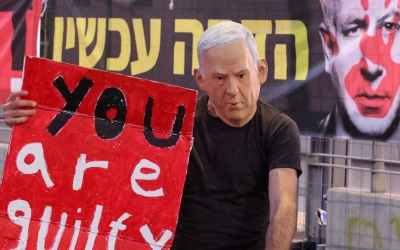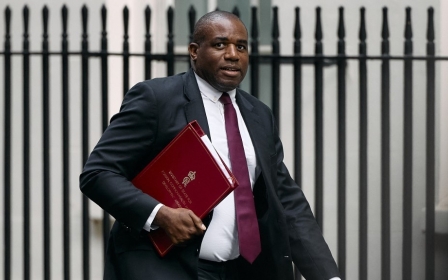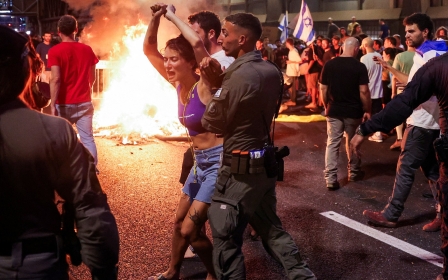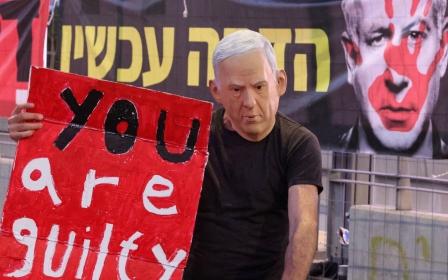Biden accuses Netanyahu of not doing enough to secure ceasefire deal
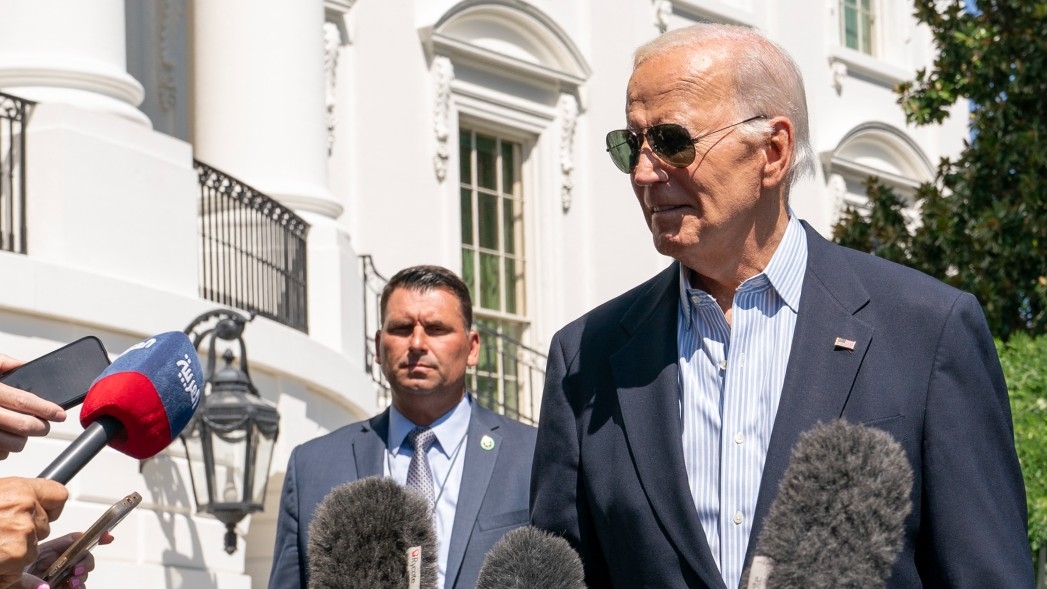
US President Joe Biden on Monday accused Israeli Prime Minister Benjamin Netanyahu of not doing enough to secure a deal with Hamas that would see the release of hostages held in Gaza.
Biden was commenting in response to a question posed by a reporter at the White House. When asked whether he thought Netanyahu was doing enough to reach a hostage deal, the president said "no" without elaborating.
Biden spoke prior to a decisive meeting with Vice President Kamala Harris and the White House's national security team to determine the strategy to push for a final ceasefire deal.
"They discussed next steps in the ongoing effort to secure the release of hostages, including continuing consultations with co-mediators Qatar and Egypt," a White House statement about the meeting said.
The comment comes after Israeli forces over the weekend recovered the bodies of six hostages, including 23-year-old American-Israeli Hersh Goldberg-Polin whose parents spoke at the Democratic National Convention last month.
New MEE newsletter: Jerusalem Dispatch
Sign up to get the latest insights and analysis on Israel-Palestine, alongside Turkey Unpacked and other MEE newsletters
Israel's military said the hostages were killed by Palestinian fighters. Hamas on Monday said that Israel bears responsibility for the death of the hostages.
Biden also told reporters that the White House was "very close" to presenting a final proposal for a ceasefire to both Israel and Hamas.
Netanyahu quickly responded to Biden's comments, pushing back against the US president and saying any pressure the US wants to assert should be on Hamas, not Israel.
"And now after this we're asked to show seriousness? We're asked to make concessions? What message does this send Hamas? It says, kill more hostages," he told a news conference in Jerusalem.
Biden's criticism of Netanyahu comes as the Biden administration has been facing growing calls from within the progressive flank of the Democratic Party to place conditions on US military support for Israel.
The US president has adopted a bear-hug approach to Israel, and since the war on Gaza began, Biden provided full support for Israel and fast-tracked weapons shipments to the country while also shielding it from criticism at the United Nations.
The US has for months blamed Hamas as the obstacle to achieving a ceasefire in Gaza.
However, the past few weeks of negotiations for a ceasefire deal have hinged on demands by Netanyahu that Israel maintain control of the Philadelphi Corridor and the Netzarim Corridor.
The Philadelphi Corridor is a 14km-long, 100-metre-wide demilitarised buffer zone along the border between Gaza and Egypt, established by two Egyptian-Israeli agreements in 1979 and 2005, while the Netzarim Corridor is a 6km stretch of land dividing northern and southern Gaza that was established by the Israeli military during the current war on Gaza.
Netanyahu has repeatedly vowed Israel will retain control over these areas and maintain a military presence at the Rafah border crossing, a crucial lifeline for aid and commercial goods that has been closed since early May.
The prime minister reiterated this position on Monday, saying: "Israel must maintain control of the Philadelphi Corridor at the border between Gaza and Egypt".
Sami Abu Zuhri, a senior official in Hamas, told Reuters that Biden's criticism of Netanyahu was "American recognition that Netanyahu was responsible for undermining efforts to reach a deal."
He added that Hamas would react positively to a deal that includes a permanent ceasefire and a full Israeli withdrawal from Gaza.
Middle East Eye delivers independent and unrivalled coverage and analysis of the Middle East, North Africa and beyond. To learn more about republishing this content and the associated fees, please fill out this form. More about MEE can be found here.


